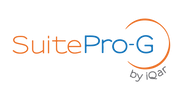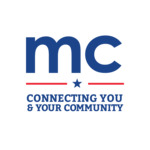What Is Municipal Software?
Municipal software is a sort of computer program created expressly for use by municipalities, which are governmental institutions in charge of providing critical services and managing resources within a certain geographic area. This software includes a variety of tools that help with day-to-day operations and decision-making processes, such as financial management and asset tracking, as well as communication improvement and citizen involvement.
One of the key applications of municipal software is financial management and budgeting. These systems enable governments to monitor and analyze their revenue and expenses, generate financial reports, and estimate future spending. This is especially important in larger municipalities with multiple departments and complex budgets. Municipal software offers tools for asset management, as well as financial management.
This type of software allows communities to monitor the condition and upkeep of assets, plan replacements or improvements, and maintain maximum utilization. Another important part of municipal software is citizen engagement. With the rise of digital communication, several municipalities are implementing software to improve communication with their inhabitants.
This may include tools for reporting problems, submitting service requests, and obtaining critical information about local events, services, and regulations. In recent years, there has been an increased emphasis on data-driven decision making in municipalities. To help with this, there are now several types of municipal software available that provide advanced data analytics.
These applications enable towns to collect, analyze, and visualize data in order to spot patterns, make educated decisions, and track the effectiveness of policies and programs. When evaluating a municipal software solution, you should evaluate your municipality's individual demands and goals. Some software packages may concentrate on a specific area, such as financial management, whereas others include a whole range of functionality. Furthermore, it is critical to select a software vendor who provides consistent technical support, upgrades, and training resources.
What Are The Recent Trends In Municipal Software?
The development and use of municipal software has increased dramatically in recent years, as local governments seek more efficient, cost-effective, and modern ways to manage their operations and serve their communities. As a buyer, it is critical to stay current on industry developments in order to make informed judgments and select the best software for your town.
Let's take a deeper look at the latest trends in municipal software.
1. Cloud-Based Solutions: One of the most significant trends in municipal software is the transition to cloud-based solutions. This enables data to be stored and retrieved remotely, removing the need for physical infrastructure and lowering maintenance expenses. It also supports real-time collaboration and scalability, making it suited for towns of any size.
2. Mobile Applications: As more people rely on smartphones and tablets for daily tasks, there is a growing demand for mobile applications in the municipal software sector. These apps allow users to access critical information and services, such as paying utility bills and reporting problems, straight from their mobile devices.
3. Data Analytics: Data analytics is becoming an increasingly important feature of municipal software, enabling governments to collect, analyze, and understand data in order to make better informed decisions. This can improve resource allocation, highlight areas for improvement, and increase overall service delivery efficiency.
4. Citizen Engagement: As social media and digital communication channels gain traction, citizens expect their local governments to follow suit. Municipal software increasingly includes elements like online forums and surveys, allowing residents to participate in decision-making processes and provide feedback.
5. Cybersecurity: As cities grow increasingly connected, the potential of cyber threats rises. Municipal software now includes strong cybersecurity protections to safeguard sensitive data and prevent cyber attacks. This is critical to ensuring citizens' safety and trust in their local government.
6. Integration Of Other Systems: Another growing trend in municipal software is integration with other systems such as finance, human resources, and asset management. This provides for a more smooth flow of data and increases the overall efficiency of municipal operations.
Benefits Of Using Municipal Software
Municipal software is a sort of technology that helps to streamline and improve the operations of local government entities including cities, municipalities, and counties. It provides a comprehensive set of features that are specifically designed to address the unique demands of municipal organizations, allowing them to efficiently handle all elements of their administrative, financial, and public service operations.
In this buyer's guide, we'll go over the primary benefits of employing municipal software for your firm.
1. Increased Efficiency And Productivity: Using municipal software provides a considerable gain in efficiency and productivity. The software automates procedures and streamlines processes, eliminating the need for manual and time-consuming documentation. This saves the time and effort required to execute numerous administrative and financial activities, allowing personnel to focus on other important duties.
2. Improved Financial Management: Municipal software has complete tools for budgeting, accounting, and financial reporting. The software not only streamlines budget generation, but it also provides real-time insights into financial data, enabling better decision-making and financial planning.
3. Improved Citizen Participation: Municipal software attempts to boost citizen participation by offering a user-friendly platform for citizens to access information and services. This includes features like online bill payments, service requests, and public data portals that help residents communicate with their local government.
4. Improved Data Management: Municipal software provides a single database to manage all elements of municipal operations. This implies that all data is maintained in a single secure and easily accessible area, removing the need for segregated information across departments. This not only increases data accuracy, but also allows for seamless data exchange, which boosts cooperation and decision-making.
5. Configurable And Scalable Solutions: Municipal software is extremely configurable, allowing firms to tailor it to their own needs and operations. Furthermore, as the business expands and grows, the software can be readily scaled up to accommodate new functionality and features, ensuring that the organization's software demands are always addressed.
6. Cost Reductions: Implementing municipal software can lead to long-term cost reductions for enterprises. Organizations can save money on labor by streamlining their procedures. Access to real-time financial data can also improve planning and forecasting accuracy, resulting in savings on wasteful expenses.
Important Factors To Consider While Purchasing Municipal Software?
When it comes to acquiring municipal software, numerous variables must be carefully evaluated to guarantee you make the best option for your organization. Municipal software, sometimes known as local government software, is intended specifically for use by cities, municipalities, and other local government bodies.
1. Identify Your Needs: The first step in selecting municipal software is to precisely describe your organization's requirements and objectives. This will allow you to narrow down your selections and select the software that best meets your individual needs.
2. Compatibility And Integration: Before deciding on a software solution, be sure it is compatible with your existing systems and processes. The software should also be able to interface easily with other systems in your firm to ensure smooth operations.
3. Ease Of Use: Because municipal personnel will have varied levels of technical understanding, the program must be user-friendly and intuitive. Complicated or difficult-to-use software can lead to inefficiencies and slow employee uptake.
4. Customization And Scalability: Because each organization has distinct demands and requirements, it is critical to select software that can be adapted to meet those needs. Furthermore, the software should be scalable as your firm grows. Security and Data Protection:
5. Security And Data Protection: Municipal software handles important citizen data, so its security and protection should be a key focus. The program must have strong security mechanisms in place to prevent unwanted access and data breaches.
6. Customer Support And Training: Look for a vendor who provides comprehensive customer support and training to ensure that you and your team are fully prepared to use the program properly. This will also assist you in the event of any technical or operational concerns that emerge.
7. Pricing And Long-Term Costs: While staying within your budget is critical, you should also consider the long-term costs of maintaining and upgrading the program. Choose software that provides good value for money and has a clear price structure.
8. Vendor Reputation And Experience: Conduct extensive research on the vendor's reputation and market experience. This will give you an idea of their track record of providing high-quality software and customer service.
9. Demo And Trial Period: Don't be afraid to request a demo or sign up for a trial period to evaluate the software's features and functionality before purchasing. This will allow you to gain hands-on experience and make a more educated decision. By taking these variables into account and conducting your due diligence, you can choose the best municipal software for your organization's needs while also contributing to its overall efficiency and success. Keep in mind that acquiring software is an investment, so take the time to weigh your options and make an informed selection.
What Are The Key Features To Look For In Municipal Software?
Municipal software is an important tool for any local government agency since it streamlines operations, increases efficiency, and improves overall service delivery to citizens. However, with so many alternatives available, it can be difficult to evaluate which software is most suited to your needs.
To make an informed decision, below are the essential elements to look for in municipal software:
1. User-Friendly Interface: The first factor to consider is the software's usability. Municipal software should be simple to use, with a straightforward design that takes little training for employees to operate effectively.
2. Comprehensive Functions: Municipal software should provide a comprehensive variety of functions to support various departments and areas of local government operations, including finance, public works, utilities, land management, and others.
3. Customization Options: Each local government has its own criteria and processes. Look for software that can be customized to match your individual requirements, rather than a one-size-fits-all solution.
4. Integration Capabilities: Municipal software should be able to interact with current systems, such as accounting software and GIS mapping, in order to eliminate duplicate data entry and streamline procedures.
5. Mobile Access: In today's fast-paced world, municipal employees and citizens want immediate access to information. Look for software that provides mobile access, such as a mobile app or a responsive web interface, allowing users to stay connected from anywhere.
6. Security And Privacy Features: Because municipal software handles sensitive information, it is critical that it has strong security and privacy features in place to safeguard data from cyber threats and maintain compliance with privacy requirements.
7. Reporting And Analytics: Municipal software should include extensive reporting and analytics capabilities, allowing you to collect and analyze data in order to make educated decisions and find areas for development.
8. Technical Support And Training: Adequate technical support and training for the program are required to ensure a seamless transition and long-term usage. Look for software vendors who give training and support relevant to your organization's requirements.
Why Do Businesses Need Municipal Software?
Municipalities, or local government bodies, are in charge of delivering basic services to their communities, such as public safety, trash management, and transportation. Given the sheer volume and complexity of these duties, towns must have efficient and dependable management systems in place. Here's where municipal software comes into play. local software is a form of software that is tailored to meet the specific requirements of local government operations. It can help to simplify and automate procedures, boost efficiency, and improve data management. But why do enterprises, or in this case, municipalities, require this software?
Let's get into the top causes.
1. Increased Efficiency And Productivity: One of the primary reasons why businesses want municipal software is to increase efficiency and productivity. Without a centralized system, towns can struggle to handle many departments and tasks. Municipal software streamlines operations, eliminates redundant labor, and helps workers execute jobs more efficiently. This results in higher productivity and cost savings for the municipality.
2. Enhanced Data Management: Municipalities deal with a large amount of data, ranging from citizen information to budget and financial data. With paper-based or manual methods, it can be difficult to maintain and organize all of this data, creating possibility for errors and security breaches. Municipal software provides a safe and organized platform for data administration, allowing workers to easily access and update information as needed.
3. Financial Management And Reporting: Budget management is an important part of municipal operations, and proper financial reporting is required for accountability and transparency. Municipal software allows communities to quickly collect and analyze financial data, making it easier to formulate budget plans and provide reports for stakeholders and governments.
4. Improved Citizenship Services: Citizens are the foundation of communities, and providing quality services to them is a primary priority. Municipal software can help with things like online bill payments, service requests, and permit applications, making it easier for residents to communicate with their local government. This increases citizen satisfaction and trust in the municipality.
5. Compliance And Regulatory: Adherence Municipalities are subject to several rules and regulations that must be obeyed to ensure compliance and avoid penalties. Municipal software can help keep track of compliance and make it easier to follow requirements. This is particularly important in fields such as environmental management and public safety.
How Much Time Is Required To Implement Municipal Software?
The installation time for municipal software varies depending on numerous aspects, including the size of the municipality, the product's complexity, and the level of customization necessary. On average, it takes between a few weeks and several months for the program to be fully implemented and operating. The first stage in deploying municipal software is assessing the municipality's needs and goals.
This entails undertaking a detailed examination of the existing processes and identifying places where the software might be enhanced. The involvement of key stakeholders and department heads in this process is critical to ensuring that the software matches the municipality's specific demands. Once the assessment is completed, the implementation process begins with software installation and configuration.
This can take anything from a few days to a few weeks, depending on how sophisticated the software is and how many modules are being implemented. The following phase is data migration, which entails moving and integrating old data into the new program. The time necessary to complete this process varies greatly depending on the amount of data and its complexity.
Training and testing are also critical stages in the implementation process. Software training should be tailored to each department's needs and might take anywhere from a few days to a few weeks, depending on the number of users and their technological skill. Furthermore, extensive testing should be performed to guarantee that the program functions properly and meets all criteria.
Overall, the implementation of municipal software might take between one and six months, depending on the municipality's size and complexity. To achieve a seamless and effective implementation process, a well-defined plan must be in place, with all stakeholders involved. Consider working with a reliable software vendor who can give training and support during the deployment process to guarantee a smooth transition to the new program.
What Is The Level Of Customization Available In Municipal Software?
When choosing municipal software, one crucial consideration is the level of customization possible. Municipal software, sometimes known as government software, is meant to assist local governments in managing their operations and providing services to their communities. Customization capabilities can vary amongst municipal software providers. Some may provide minimal customization possibilities, but others may include more complex customization tools. Before making a decision, conduct extensive research and compare the customization options offered by various software providers.
Here are some important factors to consider when assessing the level of customisation possible in municipal software:
1. User Interface Customization: The user interface (UI) refers to the visible portion of software with which the user interacts. A customisable UI allows users to tailor the software to their specific preferences and needs. This may include changing the style, color design, and types of data presented on the dashboard.
2. Feature Customization: Another factor to examine is the degree of flexibility provided for the software's features. Can users add or delete features based on their individual needs? Are there custom reports and dashboards available? These variables have a significant impact on the software's operation and capacity to suit the municipality's specific requirements.
3. Integration With Existing Systems: Municipalities may already have some systems in place, such as financial management software or geographic information systems. It is critical to ensure that municipal software integrates with these systems and handles data flow seamlessly. Customization may be required to obtain this degree of compatibility.
4. Workflow Customization: A municipality's workflow varies substantially depending on its size and operations. Customizable software should enable users to alter and automate procedures to meet their individual requirements. This can simplify operations, reduce manual labor, and increase efficiency.
5. Training And Support: Customization may necessitate a high level of software experience and knowledge. Ask about the software provider's training and support services to ensure that your staff is appropriately trained to use the customisation choices.
Which Industries Can Benefit The Most From Municipal Software?
Municipal software, usually referred to as civic software or government software, is a sort of technical solution developed exclusively for local governments and municipalities. It simplifies and automates a variety of administrative operations, including project management, budgeting, asset management, and citizen participation.
This powerful technology can benefit a wide range of companies, not just government organizations.
1. Public Works And Infrastructure: The public works and infrastructure industry is one of the largest users of municipal software. This industry constructs, maintains, and manages a variety of physical assets, including roads, bridges, water and sewage systems, and public buildings. Municipal software can assist them with asset management, tracking maintenance schedules, managing work orders, and performing inspections. This simplifies their operations, lowers expenses, and increases the overall efficiency of their procedures.
2. Utilities And Services: Municipal software can be extremely beneficial to companies like utilities and services. These companies provide water, energy, gas, waste management, and transportation services. They can use the program to better manage their resources, monitor usage and consumption, and improve customer service delivery. It can also help with asset maintenance and emergency response, ensuring that key services operate smoothly and efficiently.
3. Finance And Budget Management: Municipal finance and budget management departments can profit significantly from the use of municipal software. It allows them to effectively track spending, budgets, and revenues, assuring transparency and compliance. They may use real-time data and analytics to make more informed decisions, discover areas for improvement, and optimize their financial operations.
4. Citizen Engagement: Municipal software can let citizens engage and participate in local government activities. It enables citizens to access information, provide feedback, and participate in decision-making. This encourages transparency, accountability, and a sense of community participation in municipal government.
5. Parks And Recreation: Municipal software might be useful for parks and recreation departments. It enables companies to manage facilities and reservations, plan events and programs, and handle maintenance and scheduling. This guarantees that the community has access to well-kept and structured recreational areas, so improving their overall quality of life.
Conclusion
To summarize, investing in the appropriate municipal software is critical for local governments to properly manage their operations and resources. Throughout this buyer's guide, we've addressed the key factors that customers should consider when comparing software solutions. To begin, examine your municipality's specific objectives and goals in order to determine the features and functionality required in a software solution.
This can include financial management, process automation, and improved contact with citizens. Second, you must conduct research and comparisons of various software providers to discover a provider who provides a comprehensive and configurable solution that is within your budget. Requesting demos and references from other municipalities is highly advised for learning more about the software's user experience and effectiveness.
Additionally, ensure that the program is user-friendly and easily linked with your existing systems and software. Compatibility difficulties can result in wasted time and resources. Finally, examine the vendor's long-term support and upgrades to ensure that the program evolves to meet your municipality's evolving needs and technological improvements.
Investing in municipal IT helps your local government run more efficiently, effectively, and transparently. With the appropriate software, you can streamline operations, increase citizen involvement, and eventually improve the overall operation of your town. We hope this buyer's guide has given you enough information to make an informed decision and select the best software solution for your municipality.














